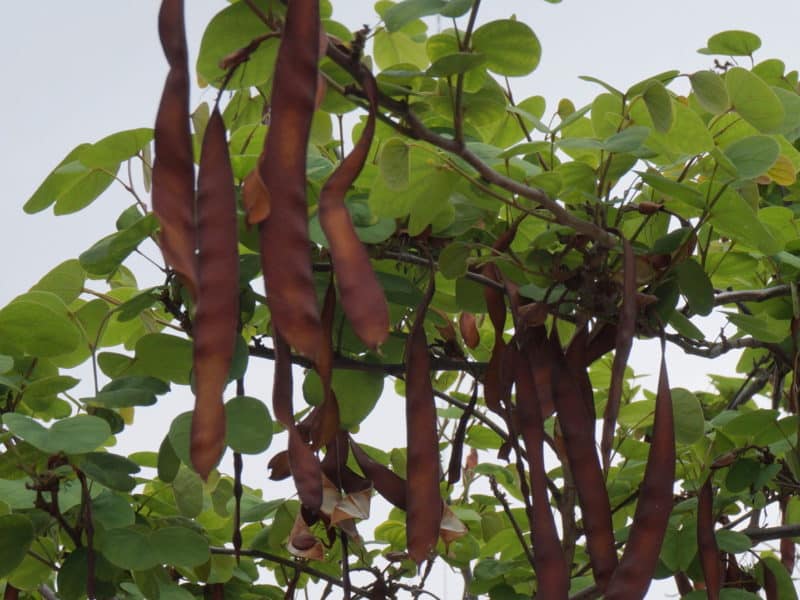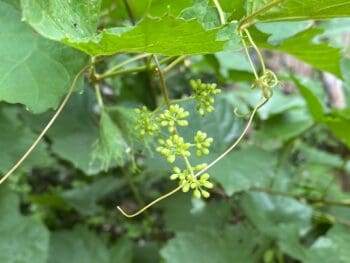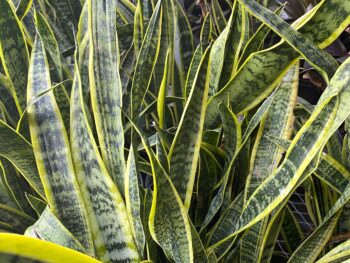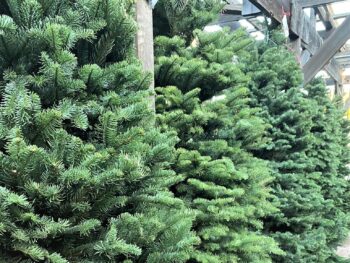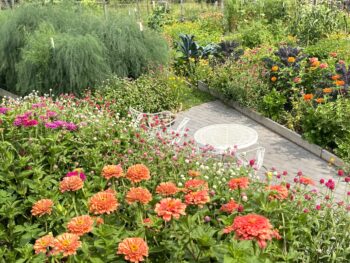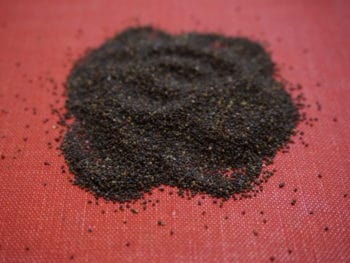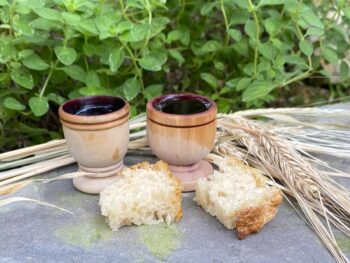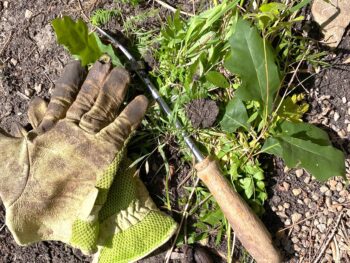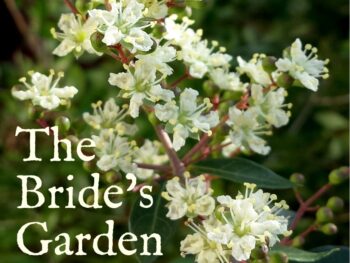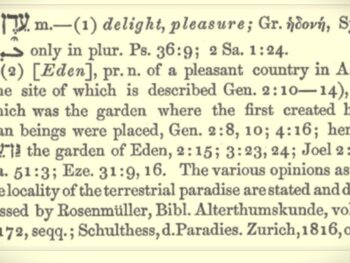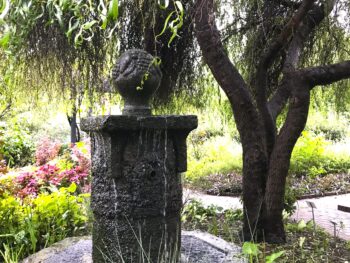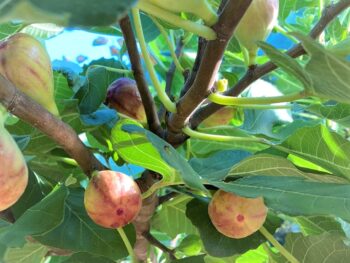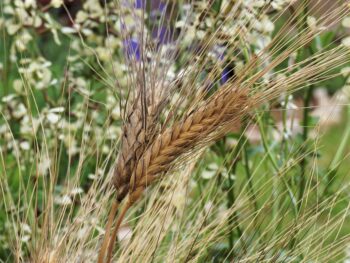I hope the story never gets old—that astonishing embrace, the father’s widely enfolding welcome to his returning son. Destitute and down-and-out, yet mindful of his father’s decency, the son returns to his father’s estate in hopes of taking a small place among those who care for his land.
There, the son determines to be grateful for the chance at modest living, sustaining meals and honest work, satisfied in the grace and dignity his father extends to his workforce. No flair, no frills; the son’s former thrill-seeking ways left him wayward, empty, lost. He fully realizes that. He is ready live in the simple and reliable—ready to be found in his father’s goodness.
“When he came to his senses, he said, ‘How many of my father’s hired servants have food to spare, and here I am starving to death! I will set out and go back to my father and say to him: Father, I have sinned against heaven and against you. I am no longer worthy to be called your son; make me like one of your hired servants.’ So he got up and went to his father.
Luke 15:17-20 NIV
Yet fanfare abounds! His return is met with the most lavish grasp in all of God’s Word, in all eternity really, an embrace echoed in every angel’s rejoicing, and a feast to celebrate his momentous return.
That’s the way God responds every time one lost sinner repents and turns to him. He says to all his angels, ‘Let’s have a joyous celebration, for that one who was lost I have found!’”
Luke 15:10 The Passion Translation
Carob Tree Detail

Just when the rejoicing couldn’t get any better, a ribbon of botany and horticulture streams through the story! O gardeners, savor the particular, deliberate detail of the pigs’ food—the slop that the son in his lowly status shovels towards the livestock. He was feeding the animals carob pods, the dangling fruit of Ceratonia siliqua trees, a source of livestock fodder in the Mediterranean region since ancient times.
And he was longing to fill up on the carob pods the pigs were eating, but no one was giving him any.
Luke 15:16 TLV
This mention emphasizes the outrageousness of the father’s acceptance, picturing the about-face that his forgiveness imparts to the son: from being refused a serving of animal fodder to being served an extravagant feast.
Gardeners Extra
Botany and garden humor appropriate an extra, practical grasp of God’s Word as well. Somewhere in the centuries after the gospel of Luke was written, Ceratonia siliqua trees came by the common name “locust tree.” This connection was made perhaps in the hopes that the fervent service of St. John in his commission to prepare the way of the Lord did not cost him so dearly that he actually ate locusts as the Scripture said:
…his food was locusts and wild honey.
Matthew 3:4 HCSB
 Instead, perhaps his meals were carob pods, still humble and crunchy, but not as outright detestable as eating bugs! Carob or locust trees were plentiful in the wilderness area where John was prepared for his work. Yes, such interpretation leaves the pages of Scripture and tumbles into human history. Yet in beautiful coincidence, the urgent words of John—
Instead, perhaps his meals were carob pods, still humble and crunchy, but not as outright detestable as eating bugs! Carob or locust trees were plentiful in the wilderness area where John was prepared for his work. Yes, such interpretation leaves the pages of Scripture and tumbles into human history. Yet in beautiful coincidence, the urgent words of John—
[John’s] message was simple and austere, like his desert surroundings: “Change your life. God’s kingdom is here.”
Matthew 3:2 The Message
[John] said, “Be sorry for your sins and turn from them! The holy nation of heaven is near.”
Matthew3:2 NLV
[John] said, “Turn back to God! The kingdom of heaven will soon be here.”
Matthew 3:2 CEV
—and the results of his call to the people…
Then people from Jerusalem, all Judea, and all the vicinity of the Jordan were flocking to him, and they were baptized by him in the Jordan River as they confessed their sins.
Mathew 3:5 HCSB
…are demonstrated in perfect harmony by the son in the carob story.
The Coming Feast
Savor the sweetness of this story and its depiction of God’s greeting to each of us who return to him, relinquishing our “fodder” for His feast to come!
“Blessed is the one who will eat at the feast in the kingdom of God.”
Luke 14:15 NIV
The angel said to me, “Write: ‘How blessed are those who have been invited to the wedding feast of the Lamb!’” Then he added, “These are God’s very words.”
Revelation 19:9 CJB
Have a blessed week in His embrace.
Welcome carob tree to the Plant Guide and learn more about its garden-to-table goodness:
gardenndelight.wpengine.com/plant-guide/carob/
For more on the carob or locust tree in God’s Word for Gardeners Bible, go to “Locusts Lead us to the Lord,” from the Pest & Pestilence devotions in the Garden Stories section, pages 1083 & a-44
Photo Credits:
©2016 Shelley S. Cramm
Carob pods dangle from a sounthern California neighborhood tree.
Wrigley Memorial & Botanical Garden is home to several mature carob or locust trees.
Mature carob trees enduring the bright sunshine of a rainless, southern California summer at the Wrigley Memorial & Botanical Garden, Catalina Isalnd, CA

